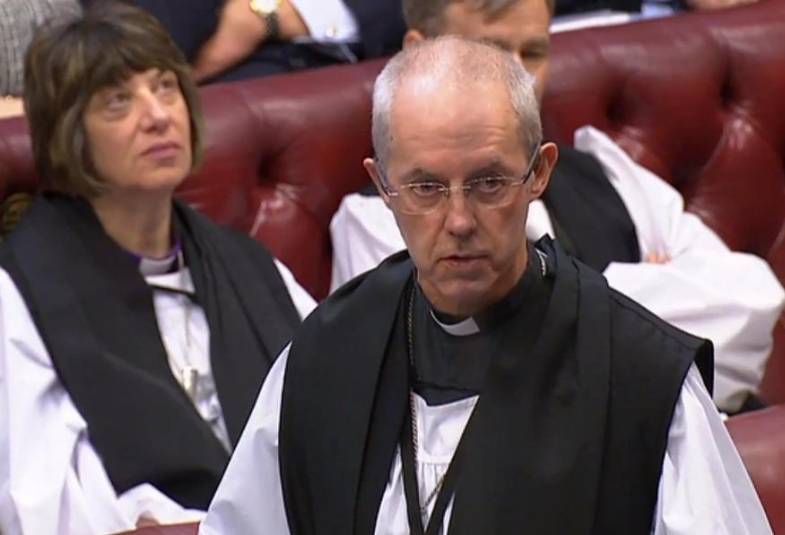07/03/2017

Archbishop Justin Welby voted against the amendment proposing a second referendum on the terms of Britain's exit from the European Union. One hundred and thirty-one voted in favour and 336 voted against.
Read the Archbishop's speech:
My Lords, I apologise to the House for not having been present at earlier stages of this Bill, for medical reasons beyond my control. The benefit for your Lordships is that I will not be on my feet for long.
I was disappointed to miss the excellent debates at the earlier stages. What unites us in this House, across all benches, is how seriously we take our role as scrutineers. On our best days we approach each question not on the basis of tribe or loyalty, but on the strength of the argument and how it might work for the common good of the country. On these benches we are not a party, nor do we follow a whip.
Today you will see a significant number of bishops appearing, not because we hold ourselves out as constitutional experts, but because we are deeply embedded in every local community in England. We may dress the same, but we have independent minds, as anyone observing church politics recently will be well aware. So I speak today not in a corporate but in a personal capacity.
The referendum campaign, and its aftermath, revealed deep divisions, my Lords, in our society, as the Noble Lord, Lord Hain, has rightly commented; and like him, this feels like the most divided country that I have lived in in my lifetime.
Whatever the outcome of the next two years, our nation’s future – particularly for the most vulnerable – will be profoundly damaged if we arrive in 2019 even more divided, without a common vision to confront the opportunities and challenges before us. To meet these opportunities and challenges – in every aspect of policy and every level of society– we must find a level of national reconciliation. So how we conduct this process is as important as the outcome itself.
I believe it would be dangerous and unwise and wrong to reduce the substance of the terms on which we exit the European Union to the result of a binary yes-no choice taken last summer – and the Government should avoid any inclination to oversimplify the outcome of the most complex peacetime negotiations, probably ever.
But neither is the complexity of a further referendum a good way of dealing with the process at the end of negotiation. It will add to our divisions. It will deepen the bitterness. It is not democratic. It is unwise. Even if circumstances change – as the Noble Baroness, Baroness Wheatcroft quite rightly said they are likely to – even if they change drastically, a dangerous and complicated process is the result of a referendum.
It is beyond doubt that those bringing this amendment and the others before the House today, and last week in committee, are moved by legitimate and deeply principled concerns for our country. To challenge that, as has been done in the press, is entirely wrong.
Similarly, those who have argued against amending this Bill have done so not from a deficit of care, but from a concern for process and a legitimate desire to reach the best outcome.
Division of our country is not a mere fact to be navigated around like a rock in a stream, but something to be healed, to be challenged, and to be changed. In many years in which I’ve worked in countries in the midst of deep division – sometimes armed, sometimes merely civil division – seeking to bring reconciliation and building common vision, both here and abroad, there are two cardinal errors.
The first is to complicate process; the second is artificially to simplify complicated substance. On this amendment, I fear, I believe, we risk making the process too complex and the substance too simple. Although I fully understand the good intentions of those who move this amendment, for these reasons I will personally be unable to support it.